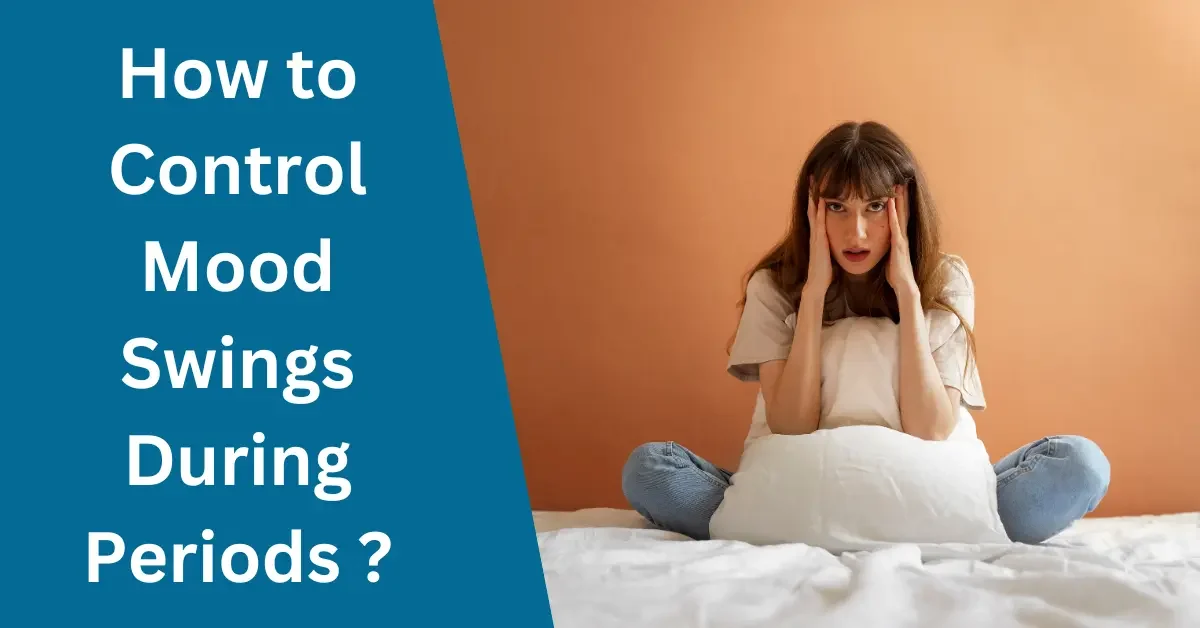Mood swings during periods are common due to hormonal fluctuations, particularly changes in estrogen and progesterone levels, which affect neurotransmitters in the brain and lead to emotional symptoms like irritability, sadness, anxiety, and heightened sensitivity. Managing these mood swings is essential for maintaining overall well-being, as unmanaged mood changes can disrupt daily activities, relationships, and productivity. By implementing effective strategies to control mood swings, individuals can achieve better emotional stability, reduce stress, and enhance their mental health, ensuring a higher quality of life and addressing any underlying health issues that may require attention.
Understanding the Causes of Mood Swings
Hormonal fluctuations during the menstrual cycle, particularly changes in estrogen and progesterone levels, can significantly impact mood. These hormonal changes affect neurotransmitter levels in the brain, which can lead to emotional and psychological symptoms. Common symptoms of mood swings include irritability, sadness, anxiety, and heightened sensitivity. These symptoms can affect daily life, such as difficulty concentrating, disrupted sleep, strained relationships, and reduced productivity. Understanding the root causes and impacts of mood swings can help individuals better manage their emotional health during their menstrual cycle.
Tips to Control Mood Swings During Periods
Lifestyle Changes
A. Exercise Regularly
Regular exercise offers numerous benefits for mood stability during periods. Physical activity helps release endorphins, which are natural mood lifters, and reduces stress hormones like cortisol. Recommended types of exercise include aerobic activities like brisk walking, jogging, or dancing, which can also improve circulation and overall well-being.
B. Healthy Diet
Diet plays a crucial role in managing mood swings. A balanced diet rich in fruits, vegetables, and whole grains provides essential nutrients and stabilizes blood sugar levels, contributing to better mood stability. Foods high in omega-3 fatty acids, such as fish, nuts, and seeds, are particularly beneficial. Conversely, it’s advisable to limit caffeine, sugar, and processed foods, which can exacerbate mood swings by causing energy crashes and increasing irritability.
C. Stay Hydrated
Hydration is key to overall health and can impact mood during periods. Drinking enough water helps maintain bodily functions, including hormone balance and metabolism. Adequate hydration can reduce bloating and discomfort often associated with menstruation. Tips for maintaining adequate water intake include carrying a water bottle throughout the day, setting reminders to drink water regularly, and opting for water-rich foods like fruits and vegetables.
Stress Management
A. Mindfulness and Meditation
Mindfulness practices offer significant benefits for managing stress and mood swings during periods. By cultivating present-moment awareness, individuals can reduce anxiety, improve emotional regulation, and enhance overall well-being. Simple meditation techniques, such as focused breathing or body scan meditation, help quiet the mind, promote relaxation, and alleviate tension associated with menstrual symptoms.
B. Adequate Sleep
Quality sleep plays a crucial role in regulating mood and managing stress levels. During periods, hormonal fluctuations can disrupt sleep patterns, leading to mood swings and increased stress. Adequate sleep allows the body to restore and balance hormone levels, supporting emotional stability. Tips for improving sleep hygiene include maintaining a consistent sleep schedule, creating a relaxing bedtime routine, avoiding caffeine and electronic devices before bed, and ensuring a comfortable sleep environment.
C. Relaxation Techniques
Effective relaxation techniques can help alleviate stress and promote emotional well-being. Deep breathing exercises, such as diaphragmatic breathing or box breathing, help activate the body’s relaxation response, reducing muscle tension and calming the mind. Progressive muscle relaxation involves systematically tensing and relaxing different muscle groups, promoting physical relaxation and reducing stress levels. Incorporating these techniques into daily routines can significantly improve mood stability and overall stress management during periods.
Medical and Supplements
A. Hormonal Birth Control
Hormonal birth control methods can help regulate mood swings during periods by stabilizing hormone levels throughout the menstrual cycle. They work by suppressing ovulation and thereby reducing the fluctuations in estrogen and progesterone that contribute to mood changes. Different types of hormonal birth control include oral contraceptives, patches, injections, and intrauterine devices (IUDs), each with varying effects and considerations regarding side effects and effectiveness.
B. Supplements
Supplements, such as vitamins and minerals, can play a role in managing mood swings during periods. Calcium, magnesium, and vitamin B6 are particularly noted for their potential to alleviate symptoms like irritability and mood fluctuations. It’s essential to consult with a healthcare provider before starting any supplements, as they can interact with medications or other health conditions, and the correct dosage needs to be determined based on individual needs.
C. Medications
When mood swings during periods are severe or significantly impact daily life, medication may be considered as part of treatment. Antidepressants, such as selective serotonin reuptake inhibitors (SSRIs), can help regulate neurotransmitter levels in the brain, improving mood stability. These medications are prescribed based on individual symptoms and medical history, and their use should be monitored closely by a healthcare provider to ensure effectiveness and manage any potential side effects.
Emotional and Social Support
A. Talk Therapy
Talk therapy, such as cognitive-behavioral therapy (CBT), provides significant benefits for managing mood swings during periods. Therapy helps individuals identify and change negative thought patterns and behaviors that contribute to mood instability. It teaches coping skills, stress management techniques, and promotes self-awareness, empowering individuals to navigate emotional challenges more effectively.
B. Support Groups
Support groups play a crucial role in providing peer support and validation for individuals experiencing mood swings during periods. Connecting with others who share similar experiences can reduce feelings of isolation, provide emotional comfort, and offer practical tips for coping strategies. Support groups can be found through local community organizations, online platforms, or referrals from healthcare providers.
C. Communication
Effective communication about symptoms with loved ones is essential for receiving understanding and support during periods of mood swings. Discussing symptoms openly helps loved ones understand the challenges faced, fostering empathy and reducing misunderstandings. Tips for effective communication include choosing an appropriate time and setting, using “I” statements to express feelings, actively listening to responses, and seeking professional guidance if communication barriers persist.
Monitoring and Tracking
A. Track Your Cycle
Tracking your menstrual cycle offers several benefits for managing mood swings effectively. It helps individuals anticipate hormonal changes and associated mood fluctuations, allowing for better preparation and coping strategies. Tools and apps for tracking menstrual cycles, such as period trackers, offer features like predicting cycle length, recording symptoms, and noting mood changes over time. These tools provide valuable insights into patterns and trends, enabling individuals to make informed decisions about their emotional well-being.
B. Identify Triggers
Identifying triggers for mood swings during periods is essential for proactive management. Common triggers include hormonal changes, stress, lack of sleep, poor diet, and certain medications. Strategies for avoiding or managing triggers involve lifestyle adjustments such as maintaining a balanced diet, practicing stress-reduction techniques like mindfulness and meditation, ensuring adequate sleep, and avoiding known stressors when possible. By recognizing and addressing triggers, individuals can minimize the impact of mood swings and enhance their overall emotional stability during menstrual cycles.
Conclusion
In conclusion, managing mood swings during periods involves understanding the hormonal and emotional factors at play and adopting a holistic approach to support mental and physical well-being. By making healthy lifestyle choices, practicing stress management techniques, nurturing supportive relationships, prioritizing self-care, considering medical options when necessary, and staying proactive with tracking and preparation, individuals can effectively mitigate the impact of mood swings. It’s important to seek professional help if symptoms are severe or persistent, ensuring comprehensive care and support tailored to individual needs. With these strategies, it’s possible to navigate menstrual cycles more smoothly and improve overall quality of life.
FAQs
How do hormonal changes contribute to mood swings during periods?
Hormonal fluctuations, particularly changes in estrogen and progesterone levels, play a significant role in mood swings during periods. These hormones influence neurotransmitters in the brain, such as serotonin and dopamine, which regulate mood. As estrogen levels drop before menstruation, serotonin levels may also decrease, leading to feelings of irritability, sadness, or anxiety. Progesterone, on the other hand, can have a calming effect when levels are stable but may contribute to mood swings when they fluctuate abruptly.
What are some effective stress management techniques for dealing with mood swings during menstruation?
Effective stress management techniques include deep breathing exercises, meditation, and progressive muscle relaxation. These methods help reduce cortisol levels, which can alleviate mood swings exacerbated by stress. Engaging in regular physical activity, such as yoga or walking, also promotes relaxation and enhances mood. Additionally, maintaining a balanced diet, getting adequate sleep, and practicing time management strategies can all contribute to stress reduction and better emotional well-being during periods.
How can dietary choices influence mood swings during menstrual cycles?
Dietary choices can significantly impact mood swings during menstrual cycles. Consuming foods rich in complex carbohydrates, such as whole grains and fruits, can help stabilize blood sugar levels and reduce mood swings. Additionally, foods high in omega-3 fatty acids, like salmon and walnuts, have been shown to support brain health and improve mood. Conversely, limiting caffeine and alcohol intake can prevent exacerbation of mood swings and promote overall hormonal balance during menstruation.
What role do supportive relationships play in managing mood swings during periods?
Supportive relationships play a crucial role in managing mood swings during periods by providing emotional validation and understanding. Talking openly with friends, family, or a partner about menstrual symptoms can alleviate feelings of isolation and stress. Loved ones who are informed about the physiological and emotional aspects of menstruation can offer empathy and practical support, contributing to a more positive emotional state during this time.
When should someone consider seeking medical advice for severe mood swings during menstruation?
Individuals should consider seeking medical advice if mood swings during menstruation are severe, persistent, or significantly interfere with daily life. Symptoms such as extreme sadness, anxiety, or anger that are difficult to manage may indicate a more serious underlying issue, such as premenstrual dysphoric disorder (PMDD) or another mood disorder. A healthcare provider can evaluate symptoms, provide a diagnosis, and recommend appropriate treatment options, which may include medication, therapy, or lifestyle modifications to improve emotional well-being.








